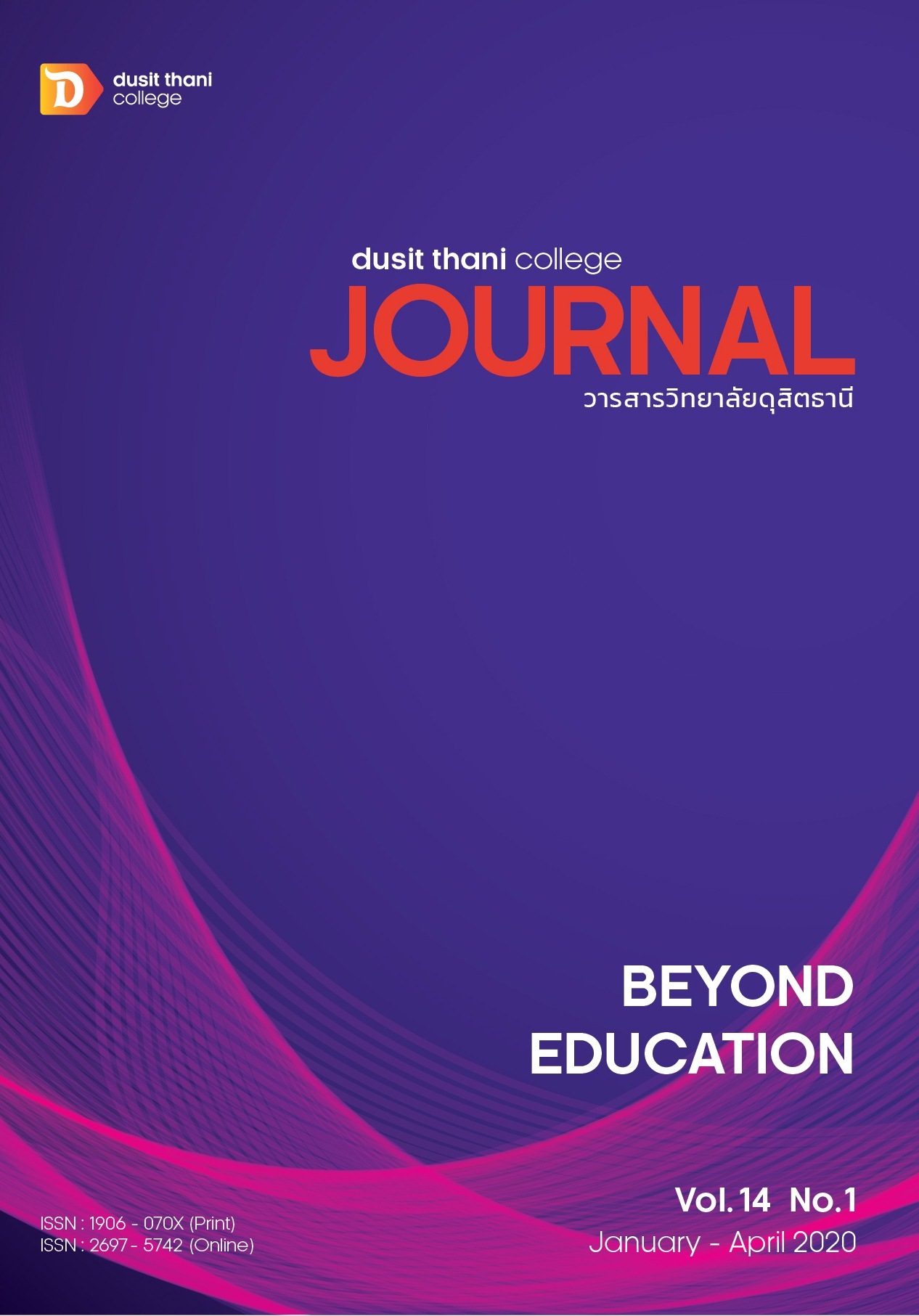Human Resources Development for Agro - Tourism in Mae Tha Sub - district, Mae On District, Chiang Mai Province
Main Article Content
Abstract
This research aims to explore factors that influence the level of potential development of community personnel in agro-tourism management. This research is analyzed based on quantitative analysis, the management theory. The concepts of capacity enhancing and human resource development, have been applied as the research framework. The specified research area is located in Mae Tha sub-district, Mae On district, Chiang Mai Province. Forty-nine key informants have been participated in this research including 14 of administrators and staff who work for Mae Tha Sub-district Administrative Organization, 22 of Mae Tha organic members, and 13 of community leaders. The collecting data method by questionnaire form as well as the descriptive statistics are used to analyze the data.
The development of potential personnel for enhancing the capacity of tourism management with the concept of human resources development by KUSAMOC as a tourism management concept is to strengthen the power of the new generation for overall social change. The average means of 7 compositions is 3.97 and that represents a high potential level of the personnel in advanced level of agricultural tourism management. This research found that focusing on individual leads to greatly increase in a collaborative teamwork which is essential for a new generation to deal with social change. Moreover, applying the tourism development strategies to the next generation enhances youths to be an authentically capable leader.
Article Details
Article Screening Policy
- All research and academic articles to be published must be considered and screened by three peer reviews in the relevant field / article.
- All articles, texts, illustrations and tables published in the journal are the personal opinions of the authors. Editors don't always have to agree. And no responsibility whatsoever is the sole responsibility of the author.
- The articles to be published must never be published. Where did you first publish? And not in the consideration of other journals If the audit found that there has been a duplicate publication It is the sole responsibility of the author.
- Any article that the reader sees as being plagiarized or impersonated without reference. Or mislead the work of the author Please let the journal editor know it will be your greatest blessing.
References
2. Attawut Chatchawan. (2015). Self-Development. Retrieved from https://www.gotoknow.org/posts/441616.
3. Institute for Resource Development and Sustainable Agriculture of Mae Tha. (2016). Sustainable Agriculture of Mae Tha. Chiang Mai: Institute for Resource Development and Sustainable Agriculture of Mae Tha.
4. Josephat Stephen Itika. (2015). Fundamentals of Human Resource Management. Netherlands: Hanze University Groningen Zernikeplein.
5. Marco Aurisicchio Et all. (2013). The Function Analysis Diagram: intended benefits and co-existence with other functional models. England: Design Engineering Group.
6. New Philanthropy Capital Organization. (2014). Developing a Theory of Change (revised March 2014). England: London, SE1 9BL.
7. Thanandasak Borananantakun. (2014). Empowering Human Resource Development. Thailand: Pathum Thani University.
8. Victorian Council of Social Service. (2016). Communities Taking Power: Using place-based approaches to deliver local solutions to poverty and disadvantage. Australia: Victorian Council of Social Service.


